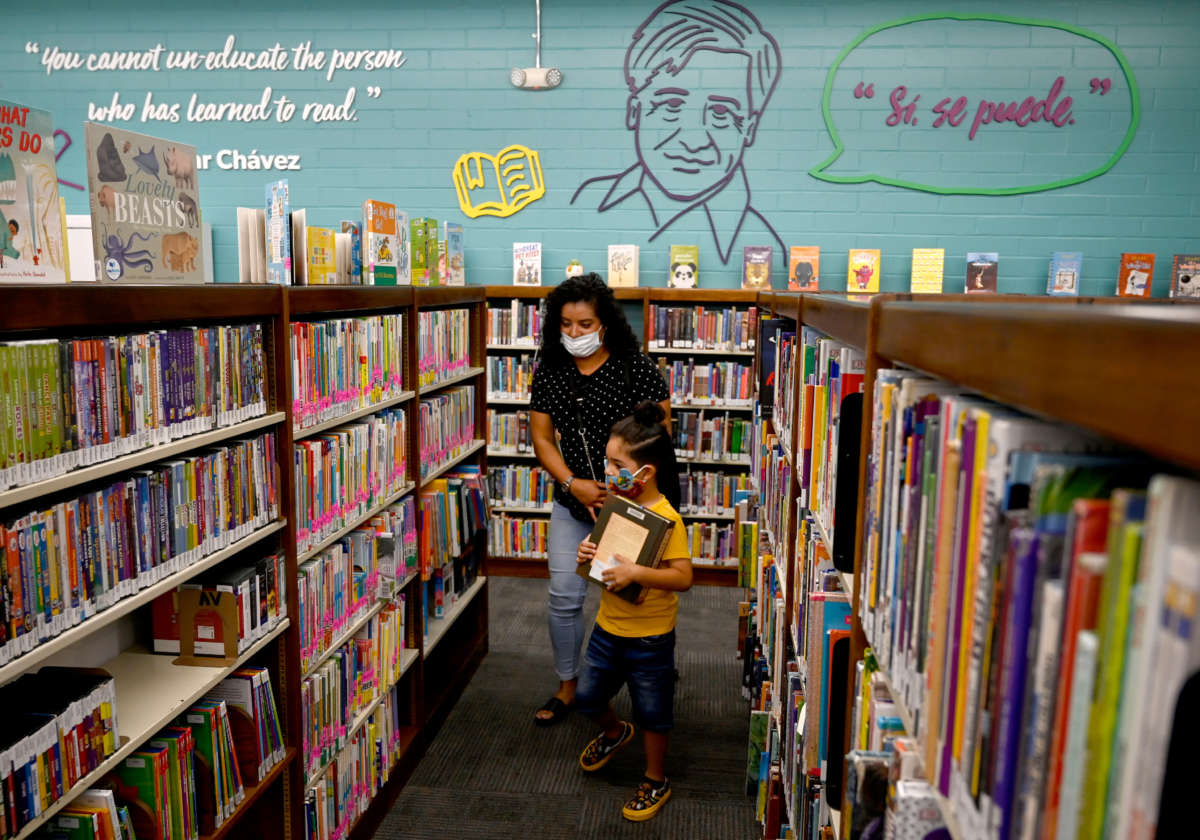Findings from a library organization published on Monday showcase that efforts from right wing groups and parents across the country to restrict access to books represent the highest number of challenges to book titles since the year 2000.
According to the American Library Association (ALA), which has been tracking such challenges for over 20 years, more than 700 challenges were made in 2021. These efforts to ban books were directed toward ones that were written by or depict the lives of Black or LGBTQ individuals.
“ALA’s Office for Intellectual Freedom tracked 729 challenges to library, school and university materials and services in 2021, resulting in more than 1,597 individual book challenges or removals,” the organization said in a press release published on Monday.
ALA President Patricia “Patty” Wong said in a statement that parents should involve themselves in what books their children decide or want to read – but restricting other parents’ rights to do the same can harm children.
“We support individual parents’ choices concerning their child’s reading and believe that parents should not have those choices dictated by others,” Wong said. “Young people need to have access to a variety of books from which they can learn about different perspectives.”
“Libraries remain ready to do what we always have: make knowledge and ideas available so people are free to choose what to read,” Wong added.
The vast majority of Americans oppose book bans. The ALA conducted a poll, published last month, demonstrating that 71 percent of U.S. voters opposed efforts to remove books from schools, libraries or universities. This includes 70 percent of Republican respondents, who agreed that book bans are harmful, the poll found.
In spite of that, however, there has been a large and vocal push by conservative groups and parents, promoted by Republican lawmakers, to restrict access to books they deem objectionable. The push to politicize Black and LGBTQ people’s existence is evidence of growing fascism on the right.
Importantly, those efforts have been opposed by many librarians throughout the country. Some have ignored requests from lawmakers to compile titles for them that could contain material that they object to, limiting these politicians’ abilities to use such books to make political grandstanding gestures that are meant to appeal to bigoted constituents.
Students have also opposed attempts to ban them from reading books that the far right wants banned. In some Texas schools, for instance, students have created book clubs that specifically highlight banned titles. Texan students have noted the hypocrisy of trying to ban books, as some of the reasons given for banning books about Black or LGBTQ people aren’t also applied to books with white or heterosexual characters.
Book titles with “heterosexual scenes, heterosexual ideas” were permissible, “but the second something turns slightly, slightly queer, slightly homosexual, it discomforts them,” one student, Maghan Sadeghi, a senior at a high school outside of Houston, said to The Texas Tribune in early March.
“Why do we have to remove books about Black people and Asian Americans simply for the sake of white people’s comfort?” Sadeghi added.
Media that fights fascism
Truthout is funded almost entirely by readers — that’s why we can speak truth to power and cut against the mainstream narrative. But independent journalists at Truthout face mounting political repression under Trump.
We rely on your support to survive McCarthyist censorship. Please make a tax-deductible one-time or monthly donation.
